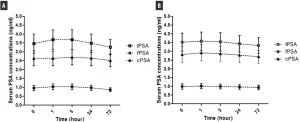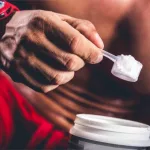When it comes to partnered sex, many people have uncertainties. A frequent concern, particularly for those with penises, is how to sustain intercourse for longer.
You might simply want to extend the duration of your sexual encounters, or you may be dealing with premature ejaculation, which causes you to orgasm sooner than you wish.
Either way, the strategies below could help you enjoy longer, more satisfying sexual activity.

1. Biofeedback
Biofeedback is a method used to retrain the brain and is applied in several therapeutic contexts. For premature ejaculation, biofeedback entails monitoring electrical activity in the brain during masturbation or other sexual stimulation.
If you’re interested in biofeedback, seek a physical therapist or clinician experienced with the approach. They’ll use the readings to guide you through visualizations, exercises, or other practices designed to help you extend your sexual endurance.
Dr. Philip Werthman, a urologist and director of the Center for Male Reproductive Medicine and Vasectomy Reversal in Los Angeles, CA, notes this can be an effective option for some individuals.
2. Edging
Edging is a non-clinical counterpart to biofeedback. With edging, you masturbate until you’re on the verge of ejaculation (the “edge”), then stop all stimulation.
The purpose is to learn your arousal signals and gain control to avoid unintended orgasm.
Edging may also intensify the pleasure when you ultimately ejaculate.
3. Pelvic floor exercises
Your pelvic floor muscles support both urinary function and ejaculation. Strengthening this muscle group can improve your capacity to postpone ejaculation.
Dr. Christopher Asandra, chief medical officer at NuMale Medical Center, says Kegel routines can benefit people with penises similarly to those with vulvas, though they demand steady practice. They target the pubococcygeus muscle.
“To do Kegel exercises, squeeze the same muscle you’d use to stop urination,” he advises. “Hold the contraction for 10 seconds, then release, aiming for at least three sets of 10 reps each day.”
4. Desensitizers
Topical desensitizing creams, gels, and similar products reduce sensation in the penis.
These substances can also affect your partner, so be sure to wipe or wash the area before sexual contact.
Asandra mentions one product he recommends, Promescent, which absorbs well enough to minimize partner exposure.
Keep in mind that desensitizers generally contain local anesthetics and can be risky if overused or applied too often.
Always follow product directions, and preferably consult your clinician before using them.
5. Adult circumcision
Adult circumcision, the surgical removal of the foreskin, might be another possibility.
A 2015 study reported encouraging outcomes: many participants experienced better control over ejaculation or improvements in premature ejaculation after circumcision.
Talk with a physician experienced in circumcision to determine whether this approach is appropriate for you.
6. Masturbation
Masturbation can help reduce the likelihood of premature ejaculation. Masturbating shortly before partnered sex may make it easier to delay climax during intercourse.
Masturbation can also be used as a therapeutic exercise. A small study found that stimulating the base of the penis until near ejaculation and then easing off could prolong ejaculation time during penetrative sex.
For penis-root masturbation, place both thumbs near the base and move them in circular or up-and-down motions. Continue until just before ejaculation, then pause.
7. Find your optimal weight
Maintaining a healthy weight may improve sexual performance.
A study found individuals with three or more of these conditions were more likely to experience premature ejaculation:
- high blood pressure
- low “good” cholesterol
- waist circumference of 40 inches or more
- elevated blood sugar
- high blood triglycerides
“We know that obesity, hypertension, and diabetes are major contributors to erectile dysfunction, so addressing underlying issues may help,” Werthman said.
8. Change up your diet
Altering your diet may also help delay ejaculation.
Werthman points out that certain foods can raise free testosterone, which supports healthy erectile function.
“Some foods, like fenugreek, can boost free testosterone,” he said. “Fenugreek contains compounds marketed as Testofen in many over-the-counter supplements.”
Note: Raising free testosterone doesn’t guarantee longer ejaculatory latency, so this tactic may be less effective than others.
Before making dietary changes or using supplements, consult your doctor to check for possible interactions with current medications.
9. Wait longer before penetration or skip it altogether
Penetrative sex (penis-in-vagina or penis-in-anal) may seem like the end goal, but rushing to penetration might contribute to premature ejaculation.
If penetration triggers quick ejaculation, focus on other activities such as oral sex or sensual touching instead.
You might choose to avoid penetration entirely. A 2017 study found about 18% of women orgasm from penetration alone; the majority require direct clitoral stimulation, so other sexual activities can lead to satisfaction for both partners.
10. Squeeze technique
The squeeze technique can help if simply stopping stimulation no longer prevents ejaculation.
To use this method:
- halt manual stimulation or withdraw the penis from your partner
- apply firm pressure to the tip of the penis with your hand
- resume sexual activity once the urge to ejaculate subsides
You can repeat this maneuver once or multiple times during sex to delay climax.
If used during partnered sex, let your partner know and consider additional ways to keep them aroused while you pause.
11. Stay in the moment
Some people suggest thinking about non-sexual things to stave off orgasm, but that’s not necessarily helpful.
Instead, Amanda Holmberg, LMFT, clinic director at the Sexual Wellness Institute, recommends staying present with your bodily sensations.
“This helps you decide what you need,” she said. “Maybe slow down; maybe take a short break entirely… you can’t make those choices if your mind is elsewhere.”
Remaining focused on the experience can help you find strategies to manage premature ejaculation.
12. Watch your arousal level going into partner sex
Being attuned to how aroused you are before sex matters.
“If you want to last longer during penetrative sex, don’t start at a high arousal level,” Holmberg advised. “That’s setting yourself up for failure. Begin at a medium arousal level so you have room to increase and enjoy the sensations.”
Starting at very high arousal substantially raises the risk of ejaculating prematurely.
13. Use condoms
Condoms can reduce penile sensitivity. If your usual brand doesn’t help, consider desensitizing condoms.
These condoms often include extra material or ingredients similar to those in topical desensitizers.
They also offer protection against sexually transmitted infections and unintended pregnancy.
14. Reevaluate your medications
In some cases, certain antidepressants — selective serotonin reuptake inhibitors (SSRIs) — are used to treat premature ejaculation, Asandra says.
“SSRIs like Prozac, Paxil, and Zoloft can delay orgasm in men, but they can also cause side effects,” he explains. “They take time to work and can lead to dizziness, drowsiness, erectile dysfunction, and reduced libido.”
While one review found limited evidence for many antidepressants in treating premature ejaculation, other studies have shown benefits.
A meta-analysis of trials using paroxetine, an SSRI, showed it performed better than placebo with generally mild side effects.
Because evidence is mixed and side effects are possible, medication is often considered a later option and should be managed by a physician.
15. Switch up your position
If nothing else works, try changing positions. It can be pleasurable, boost confidence, and offer insights.
For instance, having your partner on top may reduce stimulation. Explore different positions until you find one that helps delay climax while still pleasing your partner.
Frequently asked questions
There’s no universal rule for how long sex should last. The most important thing is that all partners feel satisfied and comfortable.
Open communication with your partner tends to produce a more rewarding sexual experience. Emphasize pleasure and connection rather than a fixed duration.
Does drinking water make you last longer in bed?
Staying hydrated is vital for overall health, including sexual health, but there’s no direct evidence that drinking water delays ejaculation or significantly improves endurance.
Does ibuprofen make you last longer in bed?
Ibuprofen is an analgesic and anti-inflammatory medicine. While it can help with pain or inflammation, it isn’t known to meaningfully affect sexual duration or performance.
The bottom line
Premature ejaculation is relatively common, affecting a notable portion of people with male anatomy.
There’s no shame in seeking professional help to discuss symptoms and treatment options. Premature ejaculation can sometimes signal an underlying issue, like a hormonal imbalance or another sexual health problem, that may need medical attention.

























Leave a Reply
You must be logged in to post a comment.